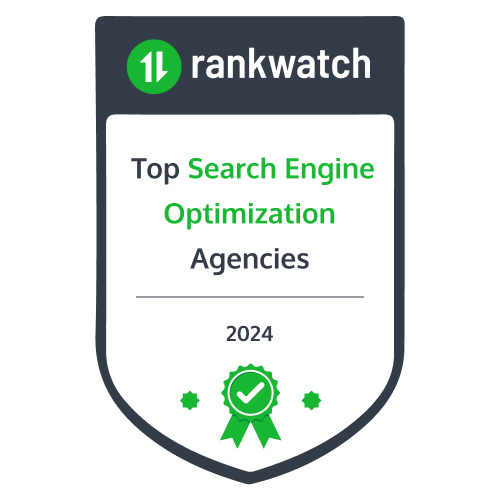Link building is a fundamental aspect of establishing a strong online presence for your digital business. By acquiring high-quality backlinks from authoritative websites, you can enhance your website’s visibility, improve search engine rankings, and drive targeted traffic to your online offerings.

However, it’s crucial to approach link building in the right way to ensure long-term success. In this article, we will explore effective strategies and best practices for building links to your digital business that will yield tangible results.
1. Introduction
In today’s digital landscape, where competition is fierce and search engine algorithms are constantly evolving, link building remains a vital component of any comprehensive SEO trends and strategies.
Link building refers to the process of acquiring hyperlinks from other websites to your own, and it serves as a vote of confidence and relevance in the eyes of search engines. When done correctly, link building can boost your website’s authority, improve organic rankings, and increase organic traffic.
2. Understanding Link Building
To embark on an effective link building journey, it’s essential to understand the concept and types of links involved. Link building involves acquiring both internal and external links. Internal links connect different pages within your website, helping search engines navigate and understand the structure and hierarchy of your content. External links, on the other hand, come from other websites and serve as endorsements or citations of your content.
3. Establishing Link Building Goals
Before diving into the process of link building, it’s crucial to establish clear goals and objectives. What do you hope to achieve through link building? Define your target audience, identify desired outcomes such as increased organic traffic or higher search engine rankings, and set measurable goals to track your progress.
4. Conducting Link Building Research
Research plays a pivotal role in successful link building. Start by conducting thorough research to gather valuable insights and data that will guide your link building efforts. Here are two key areas to focus on:
4.1 Competitor Analysis and Backlink Research
Begin by analyzing your competitors’ online presence and backlink profiles. Identify the websites that are linking to your competitors and evaluate the quality and relevance of those backlinks.
This analysis will provide valuable information about potential link sources and give you a better understanding of the competitive landscape.
There are several seo tools available, such as Ahrefs, Moz, and SEMrush, that can help you conduct competitor analysis and backlink research. These tools provide comprehensive data on backlink profiles, referring domains, anchor text distribution, and more.
By analyzing your competitors’ link profiles, you can gain insights into the types of websites that are likely to link to your own. Online sentiment analysis is crucial to understand what people are talking about.
Responding to negative sentiment promptly and empathetically can demonstrate the brand’s commitment to resolving issues. Additionally, optimizing positive sentiment and testimonials for SEO can help shift the focus from the crisis to positive experiences.
4.2 Identifying Relevant and Authoritative Websites
The next step is to identify relevant and authoritative websites within your industry or niche that could potentially link to your digital business. Look for websites that have a strong online presence, high domain authority, and a good reputation.
Start by creating a list of potential link sources, including industry blogs, online publications, forums, and websites related to your products or services. Use search engines, social media platforms, and online directories to discover these sources. Additionally, consider reaching out to influencers and thought leaders in your industry who may be willing to collaborate and provide valuable backlinks.
Remember to prioritize quality over quantity when it comes to link building. A few high-quality backlinks from authoritative websites can have a more significant impact on your search engine rankings and online visibility than numerous low-quality backlinks.
5. Creating High-Quality Content
High-quality content is the foundation of successful link building strategy. When you create valuable and engaging content, other websites are more likely to link to it naturally. Here are some key considerations for creating content that attracts backlinks:
5.1 Importance of Valuable and Shareable Content
Focus on producing content that provides value to your target audience. Offer insights, solutions, or entertaining information that resonates with your readers. Valuable content is more likely to be shared, linked to, and referenced by other websites.
Consider the different types of content you can create, such as informative articles, comprehensive guides, infographics, videos, or interactive tools. Diversify your content formats to cater to different preferences and make it easier for other websites to link to your content.
5.2 Optimizing Content for Search Engines and Users
While creating valuable content, it’s essential to optimize it for both search engines and users. Incorporate relevant keywords naturally throughout your content to improve its visibility in search engine results.
However, avoid keyword stuffing, as it can negatively impact the user experience and harm your search engine rankings. If you need support kickstarting or fine-tuning your draft, use an AI text generator.
Structure your content with clear headings and subheadings (H1, H2, H3, and H4) to improve readability and make it easier for search engines to understand the context of your content. Use descriptive meta tags, title tags, and alt tags for images to optimize your content further.
Make sure your content is well-researched, accurate, and up-to-date. Back up your claims with credible sources and provide references where necessary.
High-quality content builds trust and credibility, making it more likely to attract backlinks from reputable websites.
For those running a gym or a fitness business, a good example of this approach can be seen in the content strategy provided by TeamUp. They effectively leverage well-researched, valuable content to draw in and engage their audience.
6. Leveraging Social Media Platforms
Social media platforms offer a wealth of opportunities for link building.
They provide a platform to engage with your target audience, establish relationships with influencers, and promote your content. Here are some effective strategies for social media to leverage link building opportunities:
6.1 Using Social Media for Link Building Opportunities
Utilize social media platforms such as Facebook, Twitter, LinkedIn, and Instagram, , and employ effective social media marketing strategies to share your content and attract backlinks. Craft compelling and shareable posts that include links to your website or specific blog posts. Encourage your followers to engage with your content, share it with their networks, and link back to it from their websites or blogs.
Additionally, monitor relevant industry hashtags and participate in conversations to expand your reach and attract attention from influencers and potential link sources. By actively engaging with social media users in Instagram comments, for example, you can increase the visibility of your content and build relationships that may lead to valuable backlinks.
6.2 Engaging with Influencers and Industry Leaders
Identify influencers and industry leaders in your niche and engage with them on social media platforms. Follow their accounts, like their posts, and leave thoughtful comments that contribute to the conversation. This will help you establish a rapport and grab their attention.
When appropriate, share their content with your audience, giving credit and tagging them. By demonstrating your support and appreciation for their work, you can start building a mutually beneficial relationship. Over time, influencers and industry leaders may be more inclined to link to your content or collaborate on projects that can generate valuable backlinks.
7. Building Relationships and Outreach
Building relationships and conducting outreach are essential aspects of effective link-building. Here are two key strategies to consider:
7.1 Outreach Strategies for Acquiring Quality Backlinks
Reach out to website owners, bloggers, and influencers who have the potential to link to your digital business. Craft personalized and compelling outreach emails that clearly explain why your content is valuable and relevant to their audience. For outreaching a mass-targeted audience you can use web scraping to extract emails.
When conducting outreach, focus on building relationships rather than simply asking for a backlink. Show genuine interest in their work, provide constructive feedback, and offer to collaborate or contribute to their platforms. By building rapport and demonstrating your expertise, you increase the likelihood of receiving backlinks and establishing long-term partnerships.
7.2 Guest Blogging and Content Contributions
Guest blogging is an effective strategy for acquiring quality backlinks and increasing your brand’s visibility. Identify authoritative websites, blogs, and online publications in your industry that accept guest contributions. Study their content guidelines and pitch ideas that align with their audience’s interests and needs.
When writing guest posts, ensure they provide valuable and unique insights that are not covered extensively elsewhere. Include relevant links to your own content within the guest post, focusing on adding value rather than self-promotion. By contributing high-quality content to authoritative websites, you can attract backlinks, expand your reach, and establish yourself as a trusted expert in your field.
8. Participating in Online Communities
Engaging in online communities allows you to connect with like-minded individuals, share your expertise, and potentially acquire backlinks. Here’s how you can make the most of online communities:
8.1 Joining Relevant Forums and Discussion Boards
Identify popular forums and discussion boards in your industry or niche and become an active participant. Answer questions, provide valuable insights, and engage in meaningful discussions. When appropriate, include relevant links to your own content or resources that can further assist community members.
By consistently contributing valuable information and establishing yourself as a knowledgeable and helpful member, you can gain the trust and respect of the community. This can lead to opportunities for backlinks as other members may reference or link to your content when discussing relevant topics.




